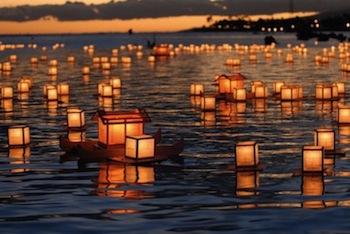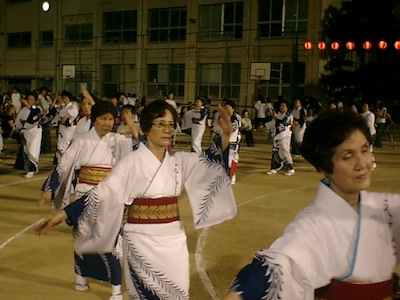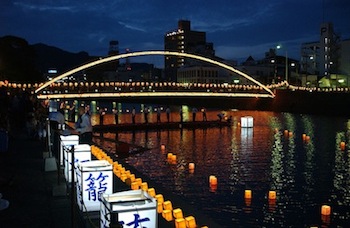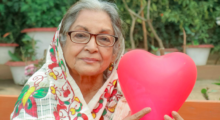Every year, Buddhists in Japan celebrate the custom of the Obon (or Bon) festival as a way to honor the spirits of beloved family members who have died. This Buddhist custom has influences from Confucianism as well. So how do practicing Japanese Buddhists honor the spirits of their beloved ancestors? Families reunite and travel together to pay visits to the ancestral family sites and clean the graves of their beloved family members who have died. Families also expect their ancestors to make their own visits to the altars set up in the family homes.
Families reunite and travel together to pay visits to the ancestral family sites and clean the graves of their beloved family members who have died.
Although this three-day festival has been celebrated for more than 500 years in Japan, the starting date varies depending on what region of Japan one lives in. This all dates back to when the official calendar for Japan switched from the lunar calendar to the Gregorian calendar. Eastern Japan, including Tokyo, celebrates “Shichigatsu Bon,” which means Obon is celebrated on July 15th. The most common time to celebrate Obon is on August 15th and is called “Hachigatsu Bon.” Lastly, people living in the northern part of Japan celebrate Obon as “Kyu Bon,” where the date is based on the lunar calendar and varies each year. Japan does not recognize Obon as a public holiday. It is standard, however, for people who celebrate to get approved time off from work obligations.
Therefore, the festival serves as a form of release for their grief as well as the suffering and anguish they believe the spirits of their ancestors are experiencing.
The meaning of Obon comes from the Sanskrit word of “Ullambana,” which means “hanging upside down”—supposedly symbolizing great suffering. Therefore, the festival serves as a form of release for grief as well as the suffering and anguish that many believe the spirits of their ancestors are experiencing.
Similar to how people in New Orleans celebrate those who have died with a funeral filled with jazz music and dancing, the Japanese who participate in the Obon Festival celebrate the return of their beloved ancestors with their own dance called Bon Odori. The origin of this dance stems from the story of how one of Buddha’s disciples, upon seeing his dead mother suffering after having fallen into the Realm of Hungry Ghosts, asked Buddha what could be done to remedy the situation. After making offerings to Buddhist monks, as Buddha told him to, the disciple’s mother was released and he danced out of pure joy and gratitude, hence the tradition of dancing was born. The type of dancing used to be strictly folk dancing that would celebrate the arrival of the spirits of the beloved ancestors. Nowadays, every region has a dance unique to them and the music varies in everything from specific songs about the spiritual meanings of Obon to local folk songs.
In addition to the joyous dancing and family bonding that happens during Obon, it can be quite common for big carnivals with rides and games to occur. The concluding event of the Obon festival involves the floating of illuminated paper lanterns down rivers as a representation for the spirits of the beloved ancestors’ departures from their families and back to where they reside after death, which is known as “Toro Nagashi.”
You may also enjoy:

 Honoring Ancestors in the Buddhist Culture: Japan’s Obon Festival
Honoring Ancestors in the Buddhist Culture: Japan’s Obon Festival





 Having an Estate Plan Is Essential – So Is Discussing It With Your Children
Having an Estate Plan Is Essential – So Is Discussing It With Your Children
 The Healing Sound of Singing Bowls
The Healing Sound of Singing Bowls
 “Summons” by Aurora Levins Morales
“Summons” by Aurora Levins Morales














